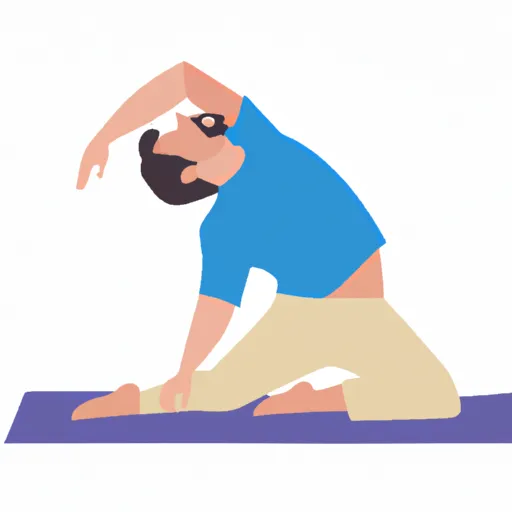Combat Stress with Healthy Lifestyle Changes
Stress is a common problem that many people face in today’s fast-paced world. It can have a negative impact on both physical and mental health if not managed properly. One effective way to combat stress is by making healthy lifestyle changes that promote overall well-being.
Exercise Regularly
Exercise is a great way to reduce stress and improve mood. Physical activity releases endorphins, which are known as “feel-good” hormones that can help alleviate feelings of anxiety and stress. Aim to incorporate at least 30 minutes of exercise into your daily routine, whether it’s going for a walk, taking a yoga class, or hitting the gym.
Eat a Balanced Diet
Read also: Beat Bloating Naturally: Healthy Diet Tips
What you eat can have a significant impact on your stress levels. Eating a balanced diet rich in fruits, vegetables, whole grains, and lean proteins can help regulate your mood and energy levels. Avoiding sugary and processed foods can also help stabilize blood sugar levels, preventing mood swings and stress.
Get Adequate Sleep
Sleep is crucial for overall health and well-being, including stress management. Aim to get at least 7-8 hours of quality sleep each night to help your body recharge and recover. Establishing a regular sleep routine and creating a relaxing bedtime routine can help improve the quality of your sleep.
Practice Mindfulness and Relaxation Techniques
Read also: Ultimate Guide to Achieving Health Goals: Staying Motivated
Engaging in mindfulness practices such as meditation, deep breathing, or yoga can help calm the mind and reduce stress levels. Taking a few minutes each day to focus on your breath and be present in the moment can help alleviate feelings of anxiety and worry.
Connect with Others
Building social connections and maintaining supportive relationships can help buffer the effects of stress. Reach out to friends and family members, join a club or organization, or participate in group activities to foster meaningful connections and reduce feelings of isolation.
| Healthy Lifestyle Changes to Combat Stress | |
|---|---|
| Exercise Regularly | Release endorphins and improve mood |
| Eat a Balanced Diet | Regulate mood and energy levels |
| Get Adequate Sleep | Recharge and recover |
| Practice Mindfulness and Relaxation Techniques | Reduce stress levels |
| Connect with Others | Build social connections and reduce isolation |
Questions and answers
What role does exercise play in combat stress relief?
Exercise plays a crucial role in combat stress relief as it helps release endorphins, which are known as the body’s natural painkillers and mood elevators. Regular physical activity can improve sleep patterns, reduce anxiety, and boost self-esteem.
How does nutrition affect combat stress?
Nutrition plays a significant role in combat stress relief as a balanced diet can help regulate mood and energy levels. Consuming a variety of fruits, vegetables, whole grains, and lean proteins can provide essential nutrients that support mental health and overall well-being.
What is the importance of sleep in managing combat stress?
Sleep is crucial in managing combat stress as it allows the body and mind to rest, repair, and recharge. Quality sleep helps regulate emotions, improve cognitive function, and reduce the risk of mental health disorders such as anxiety and depression.

